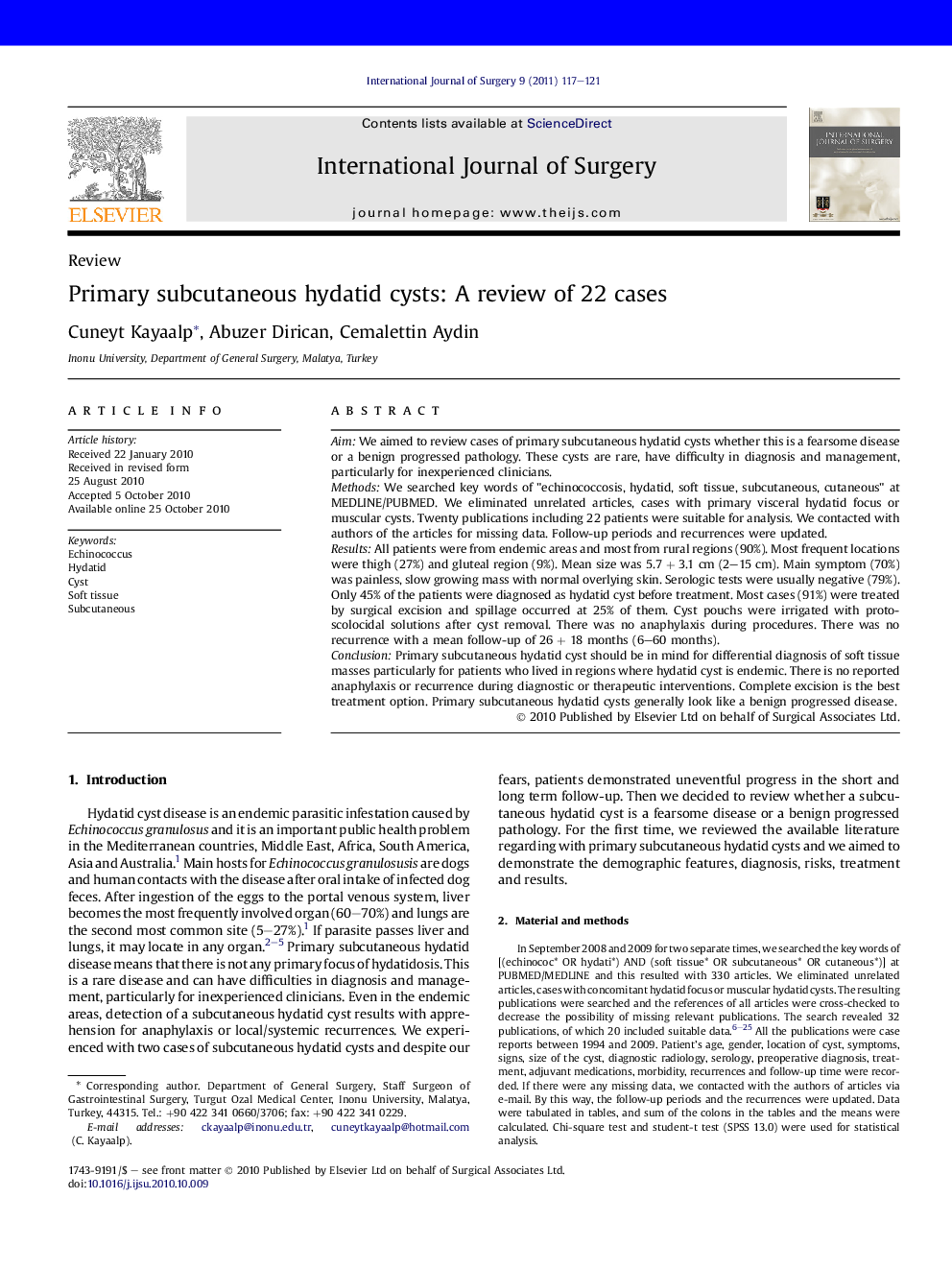| کد مقاله | کد نشریه | سال انتشار | مقاله انگلیسی | نسخه تمام متن |
|---|---|---|---|---|
| 4287158 | 1612026 | 2011 | 5 صفحه PDF | دانلود رایگان |

AimWe aimed to review cases of primary subcutaneous hydatid cysts whether this is a fearsome disease or a benign progressed pathology. These cysts are rare, have difficulty in diagnosis and management, particularly for inexperienced clinicians.MethodsWe searched key words of "echinococcosis, hydatid, soft tissue, subcutaneous, cutaneous" at MEDLINE/PUBMED. We eliminated unrelated articles, cases with primary visceral hydatid focus or muscular cysts. Twenty publications including 22 patients were suitable for analysis. We contacted with authors of the articles for missing data. Follow-up periods and recurrences were updated.ResultsAll patients were from endemic areas and most from rural regions (90%). Most frequent locations were thigh (27%) and gluteal region (9%). Mean size was 5.7 + 3.1 cm (2–15 cm). Main symptom (70%) was painless, slow growing mass with normal overlying skin. Serologic tests were usually negative (79%). Only 45% of the patients were diagnosed as hydatid cyst before treatment. Most cases (91%) were treated by surgical excision and spillage occurred at 25% of them. Cyst pouchs were irrigated with protoscolocidal solutions after cyst removal. There was no anaphylaxis during procedures. There was no recurrence with a mean follow-up of 26 + 18 months (6–60 months).ConclusionPrimary subcutaneous hydatid cyst should be in mind for differential diagnosis of soft tissue masses particularly for patients who lived in regions where hydatid cyst is endemic. There is no reported anaphylaxis or recurrence during diagnostic or therapeutic interventions. Complete excision is the best treatment option. Primary subcutaneous hydatid cysts generally look like a benign progressed disease.
Journal: International Journal of Surgery - Volume 9, Issue 2, 2011, Pages 117–121